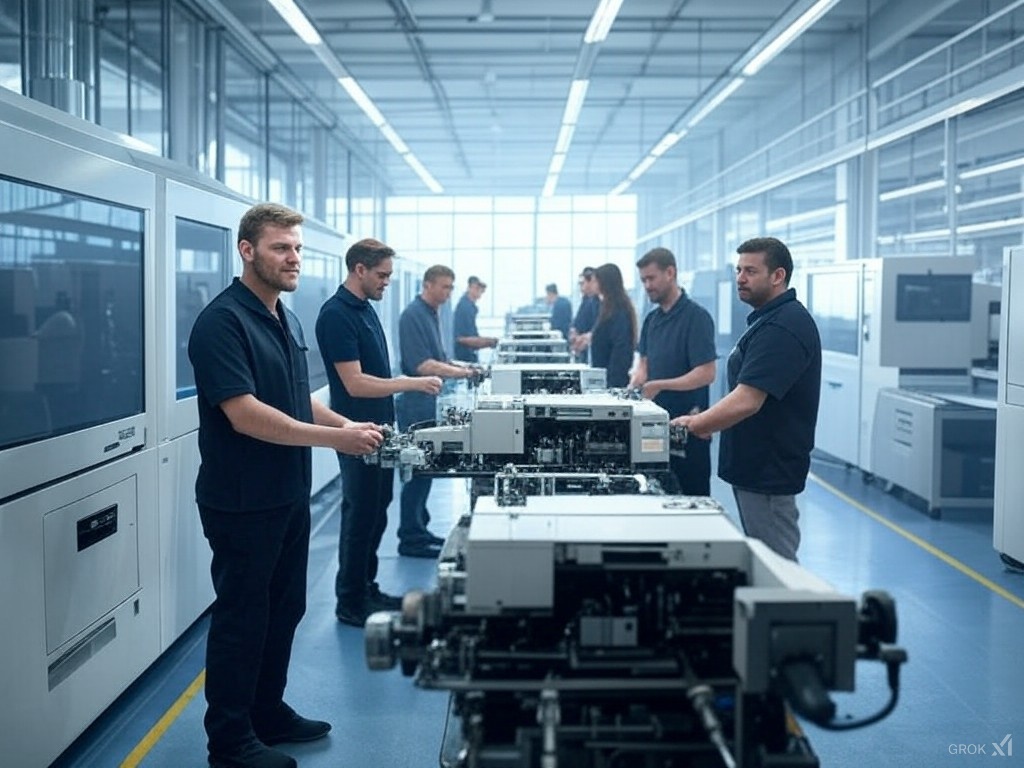The Essential Role of Training in Manufacturing Efficiency
In the fast-paced world of manufacturing, continuous improvement and efficiency are critical to staying competitive. One of the most vital components of this improvement is effective training for all employees. Training in a manufacturing factory is not merely a departmental requirement; it plays a crucial role in ensuring safety, productivity, quality, and employee satisfaction.

1. Enhancing Safety
Manufacturing environments can be hazardous, with heavy machinery, intricate procedures, and potential exposure to harmful substances. Comprehensive training programs are essential to ensuring that employees understand how to operate machinery safely, recognize environmental hazards, and comply with safety regulations. A well-trained workforce significantly reduces the risk of accidents and injuries, leading to a safer workplace.
2. Increasing Productivity
Training programs equip employees with the necessary skills and knowledge to perform their jobs efficiently. This increased competency leads to higher productivity levels as employees can complete tasks faster and with greater accuracy. When staff members are trained in the latest manufacturing techniques and technologies, it minimises downtime and maximises output, directly contributing to the factory’s bottom line.
3. Improving Quality
Quality control is fundamental in manufacturing, as defects can lead to significant financial losses and damage to a company’s reputation. Training programs focused on quality assurance teach employees how to recognize defects, follow proper procedures, and maintain consistent standards. By fostering a quality-centric mindset through training, manufacturers can ensure that products meet customer expectations and regulatory requirements.
4. Adapting to Technological Advancements
The manufacturing industry is rapidly evolving with technological advancements such as automation, robotics, and artificial intelligence. As these technologies become more integrated into production processes, ongoing training is essential to ensure that employees are proficient in using new equipment and software. This adaptability not only keeps the factory competitive but also opens up opportunities for innovation and efficiency gains.
5. Enhancing Employee Morale and Retention
Investing in employee training shows that a company values its staff and is committed to their professional development. This investment can significantly improve employee morale, resulting in a more engaged and motivated workforce. Furthermore, effective training programs can enhance job satisfaction and loyalty, reducing turnover rates and the associated costs of recruiting and training new employees.
6. Encouraging a Culture of Continuous Improvement
Training fosters a culture of continuous improvement within an organization. When employees are encouraged to learn new skills and approaches, they are more likely to suggest process improvements and innovations. This proactive mindset can lead to ongoing enhancements in efficiency, safety, and quality, benefiting the entire organization.

Conclusion
The importance of training in manufacturing factories cannot be overstated. It is an investment in safety, productivity, quality, technological adaptation, employee satisfaction, and continuous improvement. By prioritizing training, manufacturers not only comply with industry standards but also position themselves for sustainable growth and success in a competitive landscape. A well-trained workforce is fundamental to achieving operational excellence and ensuring the long-term viability of manufacturing enterprises.
Let us discuss more:



